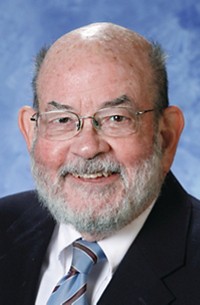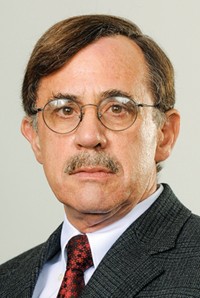Advertisement
Grab your lab coat. Let's get started
Welcome!
Welcome!
Create an account below to get 6 C&EN articles per month, receive newsletters and more - all free.
It seems this is your first time logging in online. Please enter the following information to continue.
As an ACS member you automatically get access to this site. All we need is few more details to create your reading experience.
Not you? Sign in with a different account.
Not you? Sign in with a different account.
ERROR 1
ERROR 1
ERROR 2
ERROR 2
ERROR 2
ERROR 2
ERROR 2
Password and Confirm password must match.
If you have an ACS member number, please enter it here so we can link this account to your membership. (optional)
ERROR 2
ACS values your privacy. By submitting your information, you are gaining access to C&EN and subscribing to our weekly newsletter. We use the information you provide to make your reading experience better, and we will never sell your data to third party members.
Materials
ACS Award In Polymer Chemistry
by Nader Heidari
February 11, 2013
| A version of this story appeared in
Volume 91, Issue 6
Sponsored by ExxonMobil Chemical
Craig J. Hawker preferred the bench to the desk during his undergraduate studies at the University of Queensland. “I liked math,” Hawker, director of the Materials Research Laboratory at the University of California, Santa Barbara, says. “But I really liked the laboratory. What finally stuck with me was chemistry—doing science with my hands was the most fun.”
Hawker’s enthusiasm for hands-on chemistry has grown into a prestigious and successful career. His research into dendrimer chemistry, block copolymer synthesis, and controlled free-radical polymerizations has had long-resonating effects on the field of polymer chemistry. He was the first to realize the power of applying click chemistry concepts to materials synthesis. Click chemistry is a reaction strategy in which molecular building blocks are designed to selectively and covalently “click” together to form larger constructions. His more than 400 publications have been heavily cited, with over 100 papers being cited at least 100 times.
Hawker is not only a pioneer in “making stuff,” he is also practical—many of his findings have resulted in patents, and a number have reached commercial markets. Hawker’s work has found numerous applications as diverse as integrated circuits and polymer-based therapeutics.
Hawker, 48, completed his Ph.D. in bioorganic chemistry under Sir Alan R. Battersby at Cambridge University in 1988. He entered the field of polymeric materials later that year when he began postdoctoral research with Jean M. J. Fréchet at Cornell University. There, Hawker produced his groundbreaking work on dendrimers, developing a convergent growth approach to these macromolecular architectures. This desire to utilize cutting-edge synthetic strategies to prepare functional materials has remained a central theme in his research.
After a research fellowship at the University of Queensland, in Australia, Hawker joined IBM as a research staff member in 1993. During his time with IBM, he won many academic and industrial awards for his work. He developed strategies for living polymerizations that enabled major approach advances in block copolymer lithography while also bringing the click chemistry approach to materials synthesis.
In 2004, Hawker was attracted to the unique collaborative environment at UCSB and joined the university as a professor in the materials, chemistry, and biochemistry departments. UCSB “is a tremendous place for collaboration,” he says. “There are no barriers between groups or departments.” A recent highlight is his participation with UCSB researchers who are translating biological systems such as squid beaks, cuttlefish camouflage, and mussel adhesives into synthetic materials. “This is a unique opportunity to work with students from varied groups, many with more than one supervisor,” Hawker says. “It allows us to do things that we couldn’t do otherwise.”
Although modest when discussing his own achievements, Hawker speaks with great pride about those of his colleagues and coworkers. “I have had the best of luck in working with so many exciting and enthusiastic people and through this have come to realize that one of our primary roles in academia is to be excellent mentors and advocates for younger scientists starting out in the field,” he explains.
In his free time, he likes to teach anyone who will listen the rules of cricket and Australian Rules Football.
Hawker will present the award address before the ACS Division of Polymer Chemistry.






Join the conversation
Contact the reporter
Submit a Letter to the Editor for publication
Engage with us on Twitter